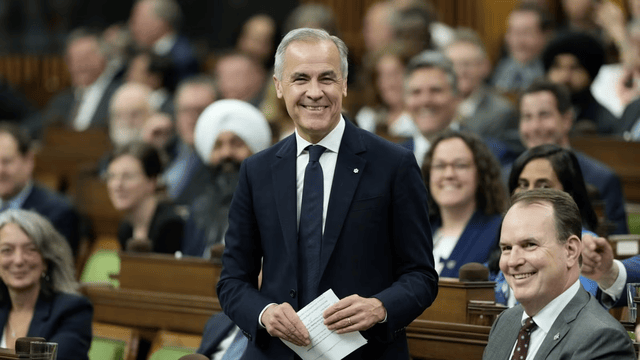
Prime Minister Mark Carney smiles as he stands for the first time in the House of Commons after the Speaker’s election on Monday, May 26, 2025, in Ottawa. The Canadian Press
Prime Minister Mark Carney will face his first question period on Wednesday. However, he won’t follow a key tradition started by his predecessor, Justin Trudeau.
Trudeau’s Wednesday Tradition
When Trudeau was prime minister, he made a special rule. Every Wednesday, he answered all questions in the House of Commons. This was meant to make the government more open and accountable to all Members of Parliament (MPs).
Trudeau said in 2017, “It was important for all MPs to ask the prime minister questions, not just party leaders.” This helped regular MPs get a chance to speak and hold the prime minister responsible.
At the time, some people worried Trudeau might avoid tough questions on other days by only answering on Wednesdays. There was a debate if this was fair to the public and other parties.
Carney’s Decision
Now, Carney will not continue this Wednesday-only question rule. A source from the Prime Minister’s Office confirmed this change. It means Carney will answer questions like before, but not just all on one day.
What’s Happening This Week
Wednesday marks the first question period of the new spring session in the House of Commons. This comes after important events earlier in the week.
On Monday, House Speaker Francis Scarpaleggia was elected. On Tuesday, King Charles gave the speech from the throne, which sets the government’s plans and goals for the session.
Carney will face questions from MPs on Wednesday, but without the special Wednesday-only answering rule. This change may affect how question periods run and how often the prime minister answers directly.
Why It Matters
Question periods in the House of Commons let MPs ask the prime minister and other ministers about government policies and actions. It’s a key way for the government to stay open and answer to the people.
Carney’s choice not to follow Trudeau’s Wednesday tradition might change how MPs interact with the prime minister. Some might have fewer chances to ask questions directly.
This is an important moment for how the government works and how open it stays with MPs and citizens.















